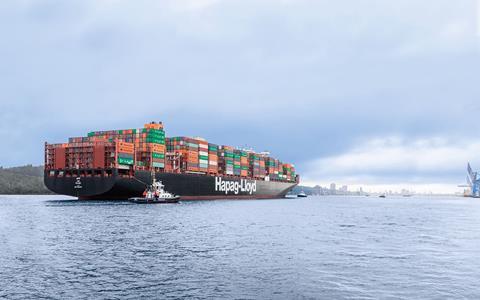The majority of shipping lines are now rerouting ships via the Cape of Good Hope due to the deteriorating security situation in the Red Sea, while several declared force majeure temporarily relieving them of their normal contractual obligations. Transit times will certainly be delayed and freight costs are expected to rise significantly.
CMA CGM and Hapag-Lloyd, for example, invoked force majeure for affected vessels and have redirected traffic around the Cape – a 4,000 nautical mile detour. Freight forwarder Blue Water Shipping said this rerouting means a minimum 10-days extra transit time, however it could be longer thanks to potential port congestion and schedule changes. As ships spend more time on the water, it also means a reduction in the frequency of departures and thus a reduction in capacity and equipment.
Blue Water explained: “Unfortunately, the route change and the consequences that arise from it will significantly increase freight costs for shippers, both due to the increased detour, but also due to the lack of capacity and containers. As a result, the uncertainty will spread to many trade lanes and have a long-term unfavourable effect on the market. This will be reflected in both increases in the freight rate itself and as various surcharges.”
In a bid to address the situation, an enhanced naval protection force – Operation Prosperity Guardian – has been created to ward-off attacks on merchant vessels in the Red Sea and the Gulf of Aden. Countries party to the USA-led plan include the UK, Bahrain, Canada, France, Italy, Netherlands, Norway, Seychelles and Spain. Absentees include Egypt and Saudi Arabia.
Jeb Clulow, partner at law firm Reed Smith’s transportation industry group, said the deteriorating security situation has far-reaching implications for world trade, which is being reflected in insurance premiums. “Some operators have adopted a ‘keep calm and carry on’ approach and continue to transit the Red Sea. The London marine insurance market has widened the area in the Red Sea judged to be ‘high-risk’, which is an additional insurance premium area.
“The timing of these security issues compounds difficulties for operators, coinciding with disruptions in transits via the other great canal, the Panama Canal. In this case, a severe drought has reduced the Panama Canal’s capacity. In both cases many operators are taking the longer and more expensive route.
“Whether an owner may take such actions, it is largely regulated by their contract or charterparty. Usually, the issue will be dealt with in a ‘war risk’ clause which regulates the situation where the passage through a particular stretch of water exposes a vessel to the risk of attack. In some cases, it is a matter for negotiation on an ad hoc basis to determine the course of action.”

















